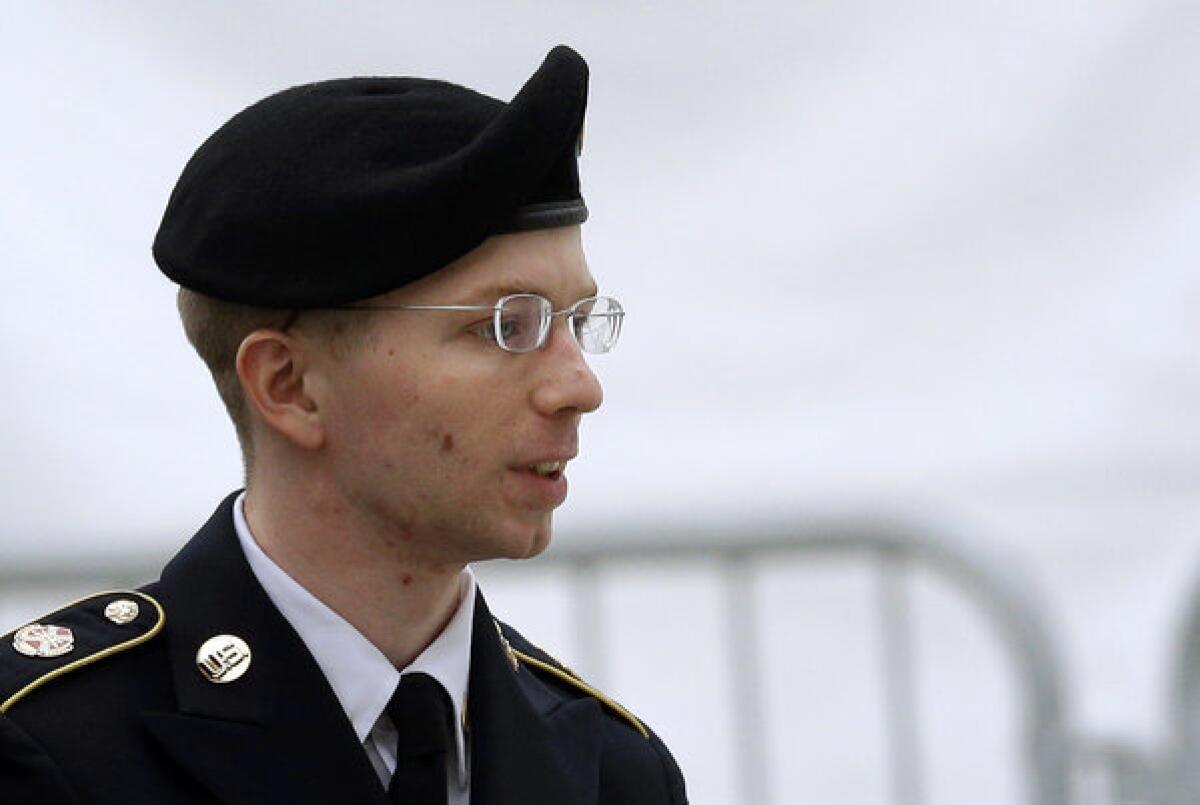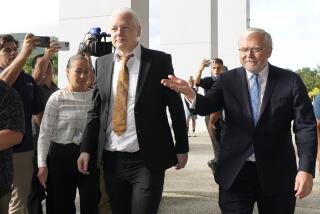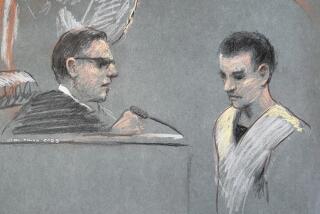Bradley Manning court-martial opens over WikiLeaks scandal

FT. MEADE, Md. — Government prosecutors, hoping to win a life sentence for Army Pfc. Bradley Manning in the WikiLeaks scandal, opened their case Monday in the court-martial against the young enlistee with a slide show that began with an ominous email he sent in May 2010.
He wrote, “If you had unprecedented access to classified networks 14 hours a day 7 days a week for 8+ months, what would you do?”
What Manning did, Army Cpt. Joe Morrow alleged in the long-awaited trial at Ft. Meade, was download and send to WikiLeaks more than 700,000 classified government documents, including highly sensitive State Department cables and assessments of terror captives, and prisoner interrogation videos to confidential U.S. evaluations of foreign allies.
“These were massive, massive downloads,” Morrow said. “Packaged and out the door to WikiLeaks in some instances in a matter of a few minutes.”
Central to the government’s case are allegations that Manning and WikiLeaks conspired to release the classified material. Prosecutors said the 25-year-old son of a former Navy intelligence analyst gave the documents to WikiLeaks not for ideological reasons such as his opposition to the U.S. wars in Iraq and Afghanistan, but because he was star-struck by WikiLeaks and its founder, Julian Assange.
Prosecutors cited chat logs between Manning and Julian Assange, the WikiLeaks editor-in-chief, and evidence that Manning had “personal contact information” for Assange. “They discussed this information,” Morrow said, even talking about ways to view the material “anonymously” so they would not be caught. At one point, Morrow said, Manning “asked Julian Assange how valuable these memos are.”
Two weeks after deploying to Iraq in November 2009, “Manning began helping WikiLeaks,” Morrow said. His first transmission was a secret, password-protected video of U.S. bomb strikes that hit civilians, and two months later WikiLeaks tweeted that it had obtained the “encrypted video.”
Army Maj. Ashden Fein, another prosecutor, said Manning downloaded a system that tracked WikiLeaks and that “he used this as a guide, or a menu, to decide what he was going to give WikiLeaks.” He then often “wiped’’ his computer clean to try to hide his tracks, Fein said.
But defense lawyer David Coombs said, “There’s simply no evidence to support that” Manning and Assange conspired to release materials. Manning, Coombs said, “was not taking his direction from WikiLeaks.”
Manning in February pleaded guilty to 10 lesser charges of mishandling classified data in return for a sentence of 20 years in a military prison, a position he reiterated at the start of the trial Monday morning. Remaining are 21 other charges including endangering the U.S. and “aiding the enemy,” charges that could bring life in prison.
Follow Politics Now on Twitter and Facebook
More to Read
Get the L.A. Times Politics newsletter
Deeply reported insights into legislation, politics and policy from Sacramento, Washington and beyond. In your inbox three times per week.
You may occasionally receive promotional content from the Los Angeles Times.










